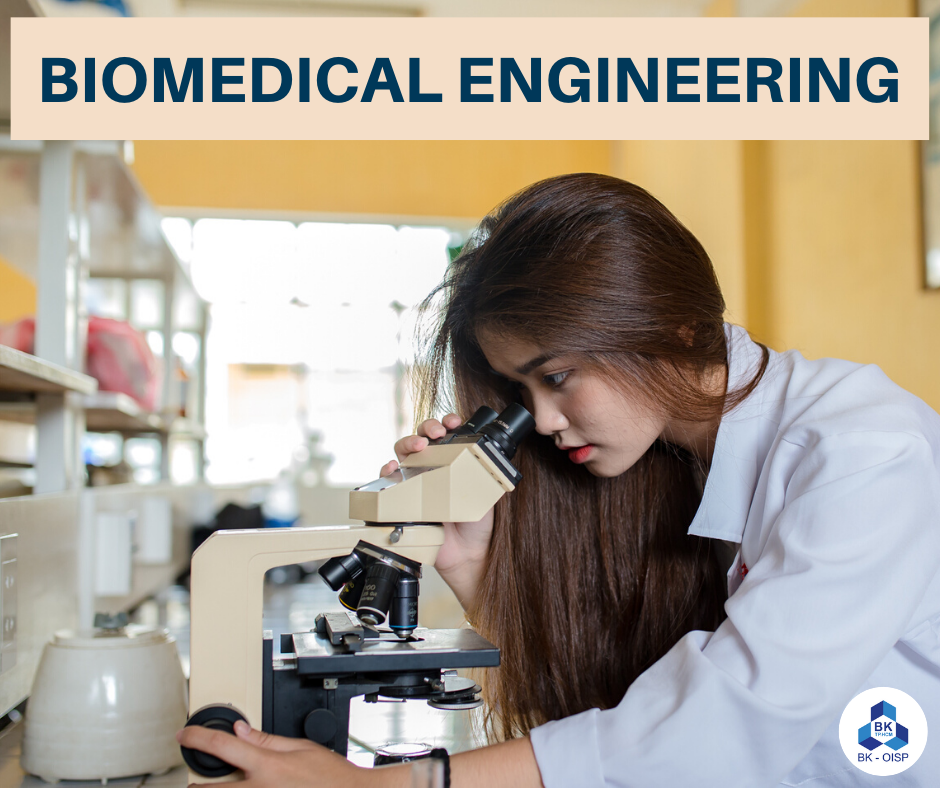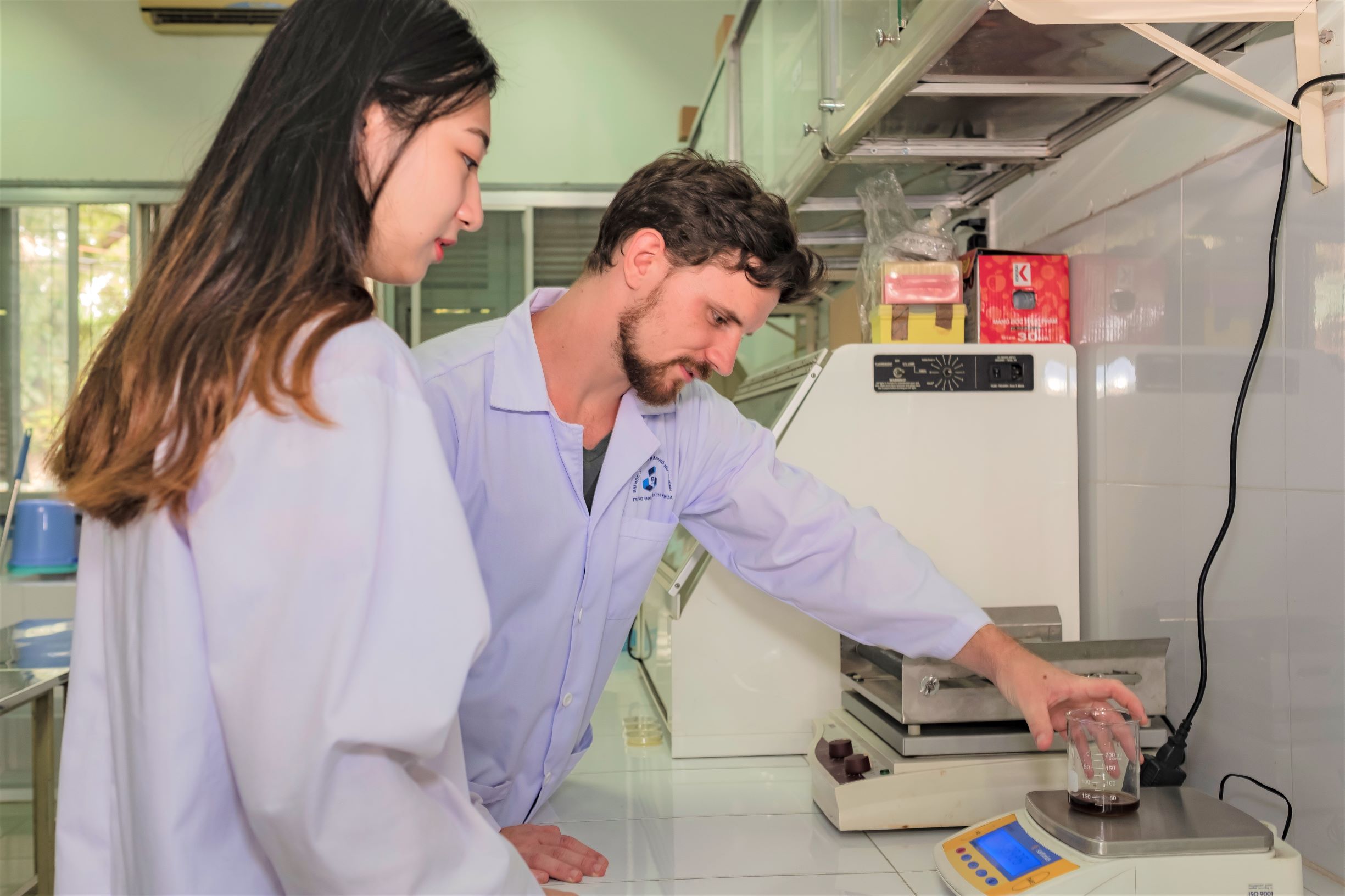Biomedical Engineering (BME) is a new specialty, emerging from the essential needs due to the strong development of science and technology in modern medicine. BME improves human health by applying engineering principles and methods to medical problems. BME engineers are experts in ensuring the most advanced technologies in medicine today, with an increasingly advanced role, along with the continuous advancements of disease diagnosis and treatment techniques. Not only helping physicians with modern technology, but BME is also the key scientists who study biological processes in the human body, creating new technologies in the field of healthcare.

Studying Biomedical Engineering in the English language with HCMUT Bach Khoa.
Biomedical engineers might find themselves developing:
After graduation, biomedical engineers can undertake work in many different positions such as:
– Research on biomedical engineering in research institutes, hospitals, schools …
– Technical experts ensure medical equipment in hospitals;
– Participate in teaching and training at colleges;
– Application experts working for representatives of foreign medical equipment manufacturers in Vietnam;

Postgraduate developments:
– Biological microcontrollers: researching mechanical applications, sensors, micro motors, microchips, silicon microprocessors to manufacture extremely small medical devices.
– Biological materials: learn about materials that can interact with the biological organization to manufacture artificial devices or organs in health.
– Biological signal processing: analyzing biological signals to filter out useful information for diagnosis and treatment.
– Genetic Industry: Understand the order, analysis, and mapping of genes – the structure of all living bodies ‘ DNA.
– Imaging and image processing: popular applications are X-ray, US, MRI, CT … in creating images of organs inside the body. The goal is to increase processing speed, reduce the cumbersome algorithm, reduce body harm and reduce costs.
– Medical informatics: studying information technology applications in diagnosis and treatment, including information storage and health care via the Internet.
– Nanotechnology: Research small biomedical devices from micrometer – about 1/50 of the diameter of a human hair, or smaller to the size of a nanometer – 1 / 50,000 of the diameter of a human hair.
– System of nerve devices and techniques: researching the brain, nervous system and related areas in order to find ways to recover or replace the common sensations, lost motor organs in patients.
– Protein technology: studying the structure, function, and interaction of proteins and gene structures. The goal is to investigate the extent to which cells of infectious diseases, treatments, and earlier diagnosis of disease through protein structure, including early detection of cancer.
– Anatomical robot: researching robot technology and image processing system to serve both the planning and implementation of medical surgery, the goal is fewer scars, less invasive, increased accuracy and price reduction.
– Telemedicine: transmitting and receiving medical data for remote evaluation, diagnosis, and treatment, including linking medical equipment, communication technology, computer network technology, etc. including distance training.
HCMUT BACH KHOA ADMISSION 2020: 4 NEW MAJORS/ MINORS
This year, 2020, HCMUT Bach Khoa will introduce four new majors/ minors as following:
🔹 Robot Engineering (minor)
🔹 Biomedical Engineering
🔹 Logistics & Supply Chain Management
🔹 Aeronautical Engineering
The programs are delivered in 100% English with experienced lecturers and international standard curriculum.

INTERNATIONAL ADMISSION 2020
Scholarships for programs in Engineering and Business is open for students from all over the world.


